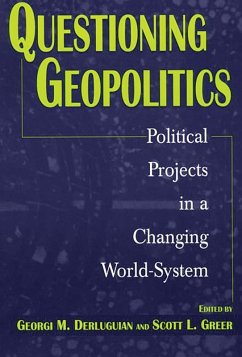This volume takes an enlightened step back from the ongoing discussion of globalization. The authors reject the notion that globalization is an analytically useful term. Rather, this volume shows globalization as merely the framework of the current political debate on the future of world power. Some of the many other novel ideas advanced by the authors include: the explicit prediction that East Asia is not going to become the center of the world; the contention that the USSR collapsed for the same reasons that nearly brought down the United States in 1973; and the notion that the regional economic networks that are emerging from under the modern states are in fact rather old formations.
The articles in the volume are organized around three main themes. Part One explores both the changing patterns of global power from the viewpoint of geopolitics and the Gramscian approach to the study of international relations. Part Two further develops the debate among a number of eminent historians and sociologists challenging both the apologists for and the opponents of globalization in new and unexpected ways. Part Three traces the emergence of regional economic networks and explores the ambiguous problems of security and identity posed by the old-new transborder formations.
The articles in the volume are organized around three main themes. Part One explores both the changing patterns of global power from the viewpoint of geopolitics and the Gramscian approach to the study of international relations. Part Two further develops the debate among a number of eminent historians and sociologists challenging both the apologists for and the opponents of globalization in new and unexpected ways. Part Three traces the emergence of regional economic networks and explores the ambiguous problems of security and identity posed by the old-new transborder formations.









